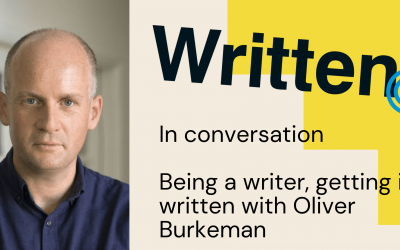Over the years we’ve answered many hundreds of questions from all types of writers. On the surface, a scholarly writer might not have much in common with a playwright, but underneath they are often thwarted by the same constraints on their time, plagued by similar doubts and fears, and struggle with getting started and keeping going with their writing. Here’s a few common writing productivity questions and some practical advice on how to tackle them.
Question: I’m really busy with work and family commitments, so how do I find the time to write? I used to be able to fit it in.
Once you know writing is a priority, you have a clear project to work on and are motivated and ready to start – it can be really frustrating to not make it happen.
In the many years we’ve been working with writers, finding time to write is biggest problem people face. It boils down to making time in your schedule and making the best use of the time you have available.
Four approaches to making time
In our research with writers we found four approaches to time management, these are:
- Daily doers have a regular habit, often writing in the same time and place. They like a predictable writing routine – it’s less about the amount of time they work for, and more about showing up each and every day to make consistent progress.
- Time boxers take a realistic and practical approach to planning and getting their writing done. They look ahead a week or two and block time into their calendar for writing sessions. By compartmentalising writing alongside their other commitments they avoid feelings of overwhelm by following a ready-made schedule.
- Deep workers have rare sessions for uninterrupted deep writing. Instead of creating a daily or weekly routine, they find time every month or so to binge write. This isn’t deadline-driven panic-writing, but scheduled sessions of super productive work.
- Spontaneous writers make the most of delayed trains, cancelled meetings and sleeping children to grab any opportunity to write. Rather than being impulsive or inspiration-driven, successful spontaneous writers are incredibly prepared. They have writing to hand, find their focus fast, and don’t get distracted.
Reflect, experiment and review
First, figure out which approach – or combination of approaches – might work best for you. Consider how you used to write in the past. What about more recently – when have you found the time?
Experiment with different approaches. For example, if your schedule is completely booked up or unpredictable, give spontaneous writing a go. Create a list of smaller tasks you can dip into when you get a spare 15 minutes. You’ll be surprised how it all mounts up. You could boost these snatches of time with a booked binge – get childcare for the weekend and lock yourself in the spare room (or a neighbour’s spare room – ideally with their permission) and write uninterrupted from dawn till dusk.
Don’t rely on assumptions, like ‘I’m a morning writer’ or ‘I can only work in sessions of four hours’ – instead, test it out and observe. Review how it goes, what works, how energized you feel, how productive you are – don’t judge one session but look to identify broader patterns.
What worked in the past when you were free from career and caring responsibilities might not work now – so stop feeling guilty that you don’t have as much time, it will only set you back further. Instead focus on making the most of what time you have.
Question: I spend lots of time prepping to write and no time writing. I always feel I need to do more research and reading before starting to write. Am I procrastinating or not? Help!
This question has its roots in procrastination – the tendency we all have to delay difficult things in favour of doing something that’s more enjoyable or less challenging.
We think there are two types of procrastination – conscious and unconscious. When you’ve just cleaned every window in the house as a way to avoid doing the writing – that’s conscious procrastination. Broadly, you know you’re avoiding the thing you should be doing.
Then there’s the unconscious kind – when we’re not sure whether we’re procrastinating or not because avoidance activity feels like work because it’s something like extra reading, researching, refining or editing.
Question your assumptions
Now, if you feel that you should read another chapter or organise your notes before you start – you could be right. You might not be procrastinating, what you’re doing might be necessary. The key is to question the assumptions you reach. Don’t just accept them. So, if you feel you might be procrastinating, do two things.
- Look for evidence. Ask yourself what proof do you have that you need to read another chapter or research before you start writing. If you believe that tomorrow will be a better day to start than today or that you’ll be feeling less tired tomorrow – ask whether that’s really true.
- Test and experiment. If you feel you can’t write without perfecting things or doing more preparation – test your assumption. Do something small. If you really can’t move on – fine! You’ve proved your point. But if you can, you might have been procrastinating and you’ve moved your project forward.
This method isn’t about forcing yourself to move on when you’re not ready, it’s about challenging the self-limiting excuses that you reach so you break free of the negative cycles of procrastination and perfectionism that can be damaging to your writing – and well-being.
>> Read more: How to stop procrastinating for good: a guide for writers
Question: How do I keep going with long – and boring – projects?
Motivation fades – as we get more acquainted with a project it loses its lustre and fades into grey. It’s just natural adaptation to a once happy-making idea.
While motivation is a key component of building long-term habits – like those needed for writing – we shouldn’t rely on motivation to power us through. Instead we need to focus on building behaviours to keep us going, and making sure they’re simple to master and obvious enough to become routine.
Habit building basics
The basics to building habits to help you finish include:
- Get clarity on your goal so you know what the finishing line looks like.
- Identify what tasks – or behaviours – will help you reach your goal.
- Get specific on the small steps you have to take.
- Find a prompt to spur you into action and design your environment to support your focus – all habits rely on cues, so build positive ones and remove bad ones.
- Celebrate your progress and reward those milestones so you associate positive feelings with your writing.
- Track your progress and reflect on what works and what doesn’t so you can double down on a winning routine.
Finally, here’s a few ideas to spice up your work in progress.
- Raise the stakes and increase the pressure by writing against the clock, set a challenging deadline and place a wager on meeting it.
- Make it more fun and increase the pleasure while you write with a new notebook or writing ritual, from lighting a candle or having an enjoyable cup of coffee to hand.
- And don’t under-estimate bribes – incentivise yourself with a treat for when you complete a session. Use your imagination to change how, when, where you write to make it less boring and predictable.
Question: How do I balance writing several different projects at once?
Working on multiple projects isn’t always a bad thing – in fact it can be really helpful. Before we explore why, let’s check in to see if you’re OK juggling lots of writing projects?
If you’re feeling busy and overwhelmed by a mounting workload – take a step back and evaluate all the projects on your to-do.
- Do you need to work on all of them? Now?
- What is most important? What is most urgent? What do you want to work on?
- Can you renegotiate any deadlines?
The process of prioritization gives you clarity and a motivational push to tackle your to-do by giving you a feeling of control.
>> Read more: Prioritize your writing – make writing matter and make it happen
If you have several projects on the go and that seems manageable, then that’s great. You’re tapping into a surprising secret of prolific authors and academics.
Slow motion multi-tasking
Writer Tim Harford in his TED Talk on slow motion multi-tasking called it a powerful way to unleash your natural creativity. He said: “we’re used to lapsing into multitasking out of desperation. We’re in a hurry, we want to do everything at once. If we were willing to slow multitasking down, we might find that it works quite brilliantly.”
He’s right. If done correctly, working on multiple projects can boost your productivity as you’ve got more in the pipeline. It can also make better use of your time and energy. For example, I like to write in the mornings when I’m feeling alert and focussed, my concentration fades as the day goes on so I’m better off editing or researching in the afternoon. Switching between projects at different stages moves them both along.
Finally, having different types of writing can keep things fresh and engaging – a novelist might take a break from lengthy plotting with a spot of flash fiction, an academic could mix up their monograph with an article or conference talk. Working on something smaller with a more achievable goal can be a treat – as long as it’s not an excuse for procrastination!
Question: I feel constantly stressed and anxious when I write and feel I need a strategy to help. What should I do?
There’s a lot of stress and anxiety around at the moment and that’s understandable. If you’re finding it tough to write given the current situation – take a break, don’t feel bad and attend to what matters most in your life. If you really can’t write – don’t.
However, if you really want to get some writing done but worries are getting in the way there are a few things you can do.
Combatting the worries you experience around your writing starts with understanding where your stress is coming from and the nature of that stress. For example, is it caused by time pressures, interruptions or unfamiliar working situations? Or, is it caused by something deeper: doubts about your abilities or fears about the future?
Keep a distraction diary
To understand these stresses a little more – keep a distraction diary. When you keep a distraction diary you simply log the worries and concerns you experience as you write. Capture your concerns as they flow in and out of your mind and don’t judge – note them down and move on.
At the end of the week – review. Take a little time to go through the concerns you have. What kind of worries do you have? Can you spot any patterns? Do any reoccur?
As you do this, you’ll probably notice that some of the anxieties you have are practical in nature and some are more hypothetical – we call these ‘what if?’ worries like ‘what if I never improve?’ ‘what will happen in the future?’. These worries are damaging because there’s nothing much you can do to resolve them, so they leave you feeling powerless.
>> Read more: 8 types of negative thinking that hold you back as a writer and how to overcome them
For the practical worries, try to put in place a plan of action of some kind. What can you do to resolve them? For example, if you constantly experience interruptions and this is stressing you out – how could you manage that interruption better? For the worries you can’t do anything about – the hypothetical variety – try ‘parking’ them for another time.
Parking does not mean dismissing or ignoring them – these worries are valid. It means accepting they are legitimate but recognising there’s little you can do to resolve them now – this helps you move past them.
What writing productivity questions do you have?
We’d love to hear what writing struggles you face and help you figure out a way through. If you’re you’re blocked, stressed or behind with a project – let us know and we’ll work out what’s holding you back.
Other questions we could answer are these – let us know if you’d like us to focus on anything specific:
- I just find writing hard. Will it ever be possible to ever have a writing habit?
- When I’m near a deadline I can produce the writing but it’s exhausting to be like that – how do I get a more consistent practice?
- How do I get more focus? Writing never seems the most important thing I should be doing and my attention is always wandering.
- When I’m on a roll with my writing then that’s fine – but starting something new is a nightmare. I’m bored with the old topic and feel overwhelmed with the new one so I do nothing. What shall I do?
- Is it worth ever setting writing goals if I always miss them?




